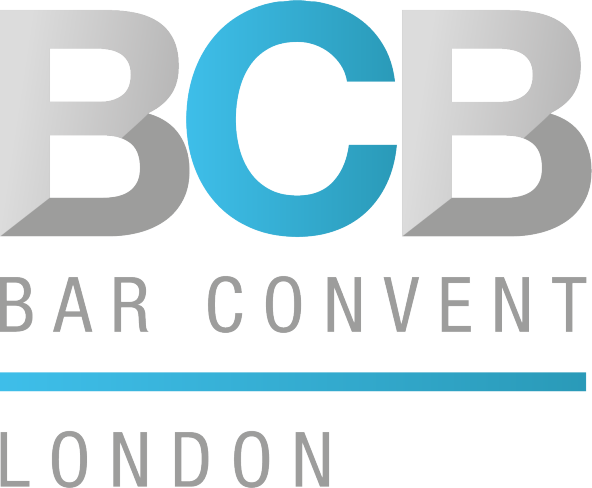What Can Beer Learn from Wine?
Kent-based Chapel Down is one of England’s most prosperous drinks businesses. It started as a winery in 1996 but successfully branched out to the beer sector in 2011 by creating the Curious Brew brand. All beer was produced under contract up until last May, when the group finally opened its own brewing site in Ashford.
With the first batch of the in-house-brewed Lager just hours away from full maturation, we caught up with Curious Brew managing director Gareth Bath to understand how wine informs the company's business model and fosters an alternative perspective on beer.
Gareth, you find yourself in the unusual yet advantageous position where you can receive constant input from Chapel Down Winery. Does wine have any influence on the way you do business?
Everything we do here in terms of business model has been influenced by wine. Josh [Donaghay-Spire], our head winemaker, has a principle which comes through into the beer making side of things: passing the ‘one bottle test’.
He makes wines in such a way that when you get to the bottom of the bottle you want to crack open the next one straight away. So we learned that the beer has to pass the ‘one bottle test’ too.
That means nailing the balance of the aromas, the harmony of flavours in the glass and the refreshment side of it. When Josh makes his wines, he wants the appearance, aroma and flavour to look like everything belongs in the same glass.
In so much of modern brewing it frustrates the life out of me when you get those beers that smell incredible and then they taste of something else. They never meet in between, which undermines the harmony in the glass.
In practical terms, are you adopting specific techniques to achieve this?
Once again we borrow from wine. We use wine yeast to clean the beer up a bit, removing things like diacetyl and DMS.
Then there are other things we’re looking at the moment, like pH adjustments to bring a bit of extra acidity, just a touch to give that freshness that makes you call for a second glass.
You get that in the cider for instance: dry with a really nice sharpness coming from both the fruit adjustment and the yeast strain. People say: ‘I’ll have another one of those please.’
Balance in a drink is crucial for a good food pairing. Is the proliferation of wacky one-off brews one of the reasons why restaurants struggle to take beer seriously?
I think so and I hope that we will be a long way ahead by the time other brewers learn that. We’ve got listings in The Ivy, in Michelin Star restaurants, Prezzo, The Pig and British Airways. They know us because of our wines and trust us on our beers. We brew the beers that we want to drink but it always comes back to balance in the glass.
Same with our spirits. Josh made nearly 100 variations on our Pinot Noir Gin to get to the right balance of juniper versus the background of red berries and soft red fruit coming from the Pinot Noir.
Do I think the beer market will get it? I’m not sure. Testing boundaries is great, but I don’t think craft brewers will keep doing what they’re doing.
It frustrates me when you get those beers that smell incredible and then they taste of something else.
GARETH BATH, CURIOUS BREWERY
Is pricing part of the problem too?
Look, our Curious Brew will cost £5.50 a pint here [at the brewery’s taproom] and maybe £6.50 in London and people say ‘that’s an expensive beer’, but then they drink 125ml of an unbranded prosecco that could be absolutely anything paying £9 for it, or maybe a standard G&T at £11.50.
You see, that’s premiumisation, and it’s where beer has to move into.
In the wine industry, everyone is expected to go through professional training. This helps in developing a common understanding of the category, educating consumers and fostering quality. Is widespread training necessary for a sustainable growth of the beer sector?
All our staff will go through Cicerone training. I believe very strongly in that qualification, it’s the closest that we’ve got to wine programmes [such as the Court of Master Sommeliers or the Wine & Spirit Education Trust] and I would like it to become a benchmark.
But we’ve got a long way to go. We need to understand how to educate consumers, that would stop brewers trying to cover up technical mistakes.
But I must say that the beer industry has already improved significantly in terms of education. When I used to work at Carling, the marketing team would know the sponsorship programme but wouldn’t know what was in the beer that they were supposed to be promoting, while a winemaker would only ever talk about what’s in the wine.
Modern brewers have changed that game completely. Every person in my role in a modern craft brewery understands the brewing process, can talk about what’s in the beer etc, and that’s forcing the big brewers to come into that space as well. That’s why you see ABI [Budweiser Brewing Group] and Carlsberg all running Cicerone programmes. We're going in the right direction.
This article was updated from one that was originally published in imbibe live magazine on 22 Jul 2019.
